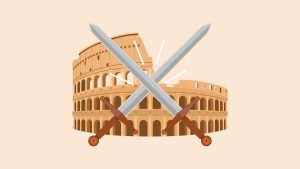
![]()
![]() She did it alright. Shortly after releasing her fourth album, 1989, Taylor Swift pulled her entire catalog off Spotify. This could be considered her most official breakup yet.
She did it alright. Shortly after releasing her fourth album, 1989, Taylor Swift pulled her entire catalog off Spotify. This could be considered her most official breakup yet.
In an interview with Yahoo Music, T-Swift was not afraid to bluntly state her perspective on illegally downloading and streaming music for free.She is not a firm believer in “perpetuating the perception that music has no value.”
I’m not willing to contribute my life’s work to an experiment that I don’t feel fairly compensates the writers, producers, artists, and creators of this music.”
We never wanted to embarrass a fan,” says Scott Borchetta, Swift’s longtime record label President. “If this fan went and purchased the record, CD, iTunes, wherever, and then their friends go, ‘why did you pay for it? It’s free on Spotify,’ we’re being completely disrespectful to that superfan.”
Swift also mentioned how open-minded she was when it came to releasing her recent hit single “Shake It Off” on Spotify as well. Though sucked into peer pressure and suggestions, she went for it despite being very uncertain.
It didn’t feel right to me. I felt like I was saying to my fans, ‘If you create music someday, if you create a painting someday, someone can just walk into a museum, take it off the wall, rip off a corner, and it’s theirs now and they don’t have to pay for it.’”
Nevertheless, when Swift decided to pull her albums off of Spotify, she felt no mercy nor left hope to the company’s premium subscribers.
Controversy arises when the topic of injustice is brought upon fanatics who actually pay to listen to their music. Spotify’s premium subscribers who do pay their monthly bill in order to get complete access to their favorite tunes were not happy with this particular decision either.
I would say that rather than terminating her relationship with Spotify, Swift could have constructed other routes or approaches to this problem. She could have compromised with the company, bringing upon a decision that would only affect the users who stream for free—not those who pay to hold the Spotify premium power.
Spotify founder Daniel Ek fired back at Taylor and her decision to remove the catalog by quoting Thriller producer Quincy Jones:
Spotify is not the enemy; piracy is the enemy. Piracy doesn’t pay artists a penny—nothing, zilch, zero,” Ek noted. “We’re working day and night to recover money for artists and the music business that piracy was stealing away,” he added.
It is evident enough to see: hardcopy album sales have substantially dropped in comparison to digital downloads. The music industry has been abducted by a mass media that fundamentally surrounds technology. As a generation, we are accustomed to acquiring what is new 24/7. In this day and age, physical copies are most likely consumed by hardcore fanatics or individuals who prefer having the tangible edition of an album versus the digital. But there is no use in fighting the fact that online downloads have dominated palpable records in sales. Last month analysts at Credit Suisse, a leading global financial services company, predicted that streaming subscriptions would dominate other sources of revenue in the near future and that by 2017 we will be looking at streaming holding a superior position in generating revenue growth.
According to the Recording Industry Association of America, record sales have been collapsing this year not only due to digital retail, but also music catalogs being offered via multiple streaming platforms, including Youtube. Nielsen Soundscan also recorded album sales decreased by 14% while paid subscriptions vaulted to 57% specifically last year.
If streaming at no cost was the dilemma, then Swift might have just forgotten about Pandora as well. Both Pandora and Spotify are very similar yet distinctive ways of streaming music. Both services offer the consumer a choice in upgrading to its ad-free premium version when they agree to pay $4.99 or $9.99 per month. So why does Swift allow Pandora to display her music but not Spotify? Perhaps there is just a fine line between “accessing all you want for free” (Spotify), and “accessing just a little bit for free” (Pandora). Swift might just give her preference to Pandora in order to reinforce the “if you’re a real fan, you’ll go buy the album” strategy. It is pretty clear: Swift only wants dedicated fans who are willing to pay full price for her album.
Her catalog still remains on other services such as Rdio, Beats Music, and Rhapsody; the difference is that it is only available to paying subscribers.
Quite frankly, I do not blame her. If you spent countless hours working on something that would be put out on display and to buy, it would not be fair to the artist if they did not get rewarded for their hard work.
Although, on the contrary we have to recognize we are in an era where music is simply at our fingertips. We have the ability to illegally download music and turn an artist’s full album on Youtube into a collection of MP3s for our iPods, all at no cost. I am not saying this is the correct way of acquiring music, but we would be completely oblivious and naïve if we were to claim that there is a solution to this.
Regardless of how you try and work around it, this is a never-ending cycle, and it has always been this way. Swift might have decided to start putting an end to this herself, but there is only so much a single person can do. As much as musicians try, they cannot protect their music from absolute piracy. There is always a way to consume music illegally.
Regardless of what Swift amounts in royalties from Spotify, she is still getting paid. Whether she is getting paid the exact amount she has earned is still up for debate, but that is another subject matter. With or without Spotify, T-Swizzle continues to shatter records with every album she puts out. 1989 proves my statement right, bringing in 1.287 million sales only during its first week.
So, is this a final break-up for Taylor and Spotify? Or might Swift reconsider the idea of letting the company back into her music’s life? I would say it is possible we might just even get another relationship song out of this controversial debate.







Be First to Comment